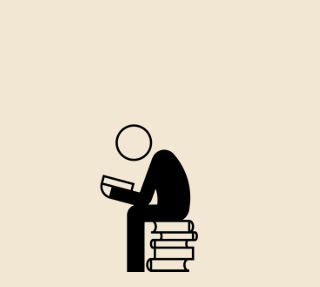
High Lantern Group’s Reading List
Every month, High Lantern Group gathers a small list of interesting, provocative, and contrarian items that shed light on what makes great strategic positioning and thought leadership. We are happy to share them with you - and hear from you about ideas worth sharing.
Six Ideas That Made Us Think
1. Fake News, Fake Everything
Nicholas Carr’s review of Jonas Bendiksen’s The Book of Veles is a revealing study of modern deception. The book purports to be a work of photojournalism about a northern Macedonian town, but the entire publication is a fraud. According to Bendiksen, the ruse was a test to see if reviewers could tell phony photojournalism from the real thing. They couldn’t:
Grainy and dimly lit, the images are eerie, poignant, and beautiful. They’re also fake.... Bendiksen’s introductory essay, too, is a fake. He didn’t write any of it. Instead, he fed existing news stories about Veles and social media fraud into GPT-2, a software program that employs machine-learning algorithms to generate fake text, and used a variety of prompts to get the program to spit out made-up stories on the topics he wanted to cover. He pieced bits of the stories together, including the entirely fictional interview with “Alex,” to produce the essay. “My work is about telling the truth”: those words aren’t Bendiksen’s; they’re the words of a computer.
2. The Year of Web 3.0
It’s possible that more will be written in 2022 about Web 3.0 than COVID. Ben Evans is a reliable place to start. His new essay emphasizes that it is still too early to make grand predictions about the future of technology:
Talking about this today in any kind of detail is like making detailed predictions about the mobile internet in 1999, or even 2005. It was very clear that there would be something, but we had no real idea what, and no-one thought that smartphones would replace PCs as the centre of consumer tech (or imagined that a has-been computer company from Cupertino would dominate the whole thing). AR and VR might be the next smartphone, but they might also be the next smart watch, drone, or games console - very cool but a narrow market.
Evans’s 93-slide presentation on Web3, the metaverse, crypto, the future of online commerce and other topics is a must-read.
3. Stuff the Internet Says
It's always worth reading Tom Whitwell’s annual list of 52 things he learned over the year from a rich variety of online sources. Here are four highlights:
A study of 14,000 Australians over 14 years found that neither being promoted nor being fired has any impact on either emotional wellbeing or life satisfaction. [Nathan Kettlewell & co]
Adding nature imagery (grass, trees, rainbows) to a pitch document seems to increase the likelihood of investment a little. [Koen van Boxel & co, via Ed Curwen]
Short afternoon naps at the workplace lead to significant increases in productivity, psychological well-being and cognition. In contrast, an extra 30 minutes sleep at night shows no similar improvements. [Pedro Bessone]
The notion of a personal ‘Carbon Footprint’ was invented by Ogilvy & Mather for BP in the early 2000s. [Mark Kaufman]
4. Mexico City’s Death in the Afternoon
The Washington Post’s report on Mexico City’s pending legislation to ban bullfighting from the capital is a superb piece of reporting, replete with excellent photographs. Reporter Kevin Sieff shows how the battle over bullfighting in Plaza Mexico – “one third of the holy triumvirate of bullfighting grounds, along with stadiums in Seville and Madrid” – is Mexico City’s latest cultural showdown:
IThe oldest capital in the Americas is a frequent backdrop for enduring debates between traditionalism and modernity. The overwhelmingly Catholic city legalized abortion in 2007 and same-sex marriage in 2009. It hosts religious pilgrimages and underground raves — often during the same weekend. Local politicians stirred controversy recently when they allowed a Christmas tree plastered with advertisements for a battle-royal shooting video game to be installed in a 15th century plaza.
5. Elizabeth Holmes Would Have Scored Well on Myers-Briggs
Andy Green, a deep skeptic of Myers-Briggs personality testing, argues that the trial of Theranos founder Elizabeth Holmes perfectly reveals how corporate personality tests are biased against introverts and people who rely on evidence to do their jobs. “When Holmes had to deal with someone from the reality-based world of science and data analysis who had different opinions, the results were entirely predictable.” Green continues:
The extrovert, whose skill is at manipulating people, will blame the introvert when there are problems, and take credit when there are successes. And that’s what played out in court when Holmes’s attorney suggested that [former Theranos lab director Adam] Rosendorff and other technicians were incompetent: the Edison machine really worked but they didn’t know how to interpret the results. Rule of thumb: it’s always the introvert’s fault.
6. High Lantern Group’s Reading List
At the end of the year, everyone at High Lantern Group selects a book they have read during the past year and offers them as recommendations to colleagues. Our tradition is to pull the list together and let each member of our team pick one of the books as a gift from the firm. We are happy to share our combined list this year – our gift to you, faithful reader of The Notebook. We hope it brings a great start to 2022.
Websites Worth Reading
Sports Idiots: Deadspin’s annual dunking ritual
Web3 Explained: Long, literate essay on Web 3.0
The Windmap: Live map of where the wind blows in US
Feeds We Follow
@bradwolverton: Thread on email subject lines
@DocumentingBTC: Early history of Bitcoin
@MapPornTweet: Cartography geeks


